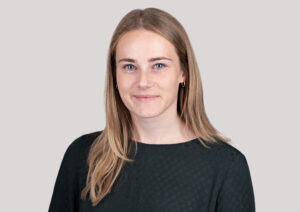How did you get into the profession?
I first became interested in the patent profession whilst studying for my degree, but it was not until after, when I was working in the pharmaceutical industry, that I began to discover more about patents and their commercial importance. After further research into the role of a patent attorney, I felt that it fulfilled all of the requirements I was looking for in a career. In particular, I was drawn to the unique mix of technology, law and language as well as the prospect of working in a client facing role whilst applying and building on the scientific knowledge I had gained from my degree. I have always enjoyed building relationships and meeting new people so a career as a patent attorney seemed like the perfect fit.
Although I initially considered becoming a patent attorney in-house I felt that I could gain exposure to a more diverse range of inventions by working in private practice. Reddie & Grose immediately leapt out at me as a firm I would love to work for. They have a clear focus on professional development and a structured training program, including a two-week training camp immediately after joining followed by fortnightly training sessions that are designed to thoroughly prepare trainees for the rigorous qualifying exams. I had two interviews at Reddie & Grose followed by lunch with some of the current trainees and associates. They were incredibly friendly and welcoming and when the offer of a job came through I accepted immediately.
What are your main roles and responsibilities?
I work directly with a partner within the Life Sciences team and the majority of my work comes from this area. Since my first day I have been given real cases to work on, which, under the supervision of my partner, I am responsible for managing and monitoring. The work on each case is diverse and ranges from formulating arguments to overcome Examiners’ objections, to drafting new patents for inventions made by our clients. I have also been involved in several opposition cases and attended meetings with new clients to discuss their invention.
The work I produce is reviewed by my partner who will offer constructive feedback and advice. There is a lot of new information to learn, particularly when getting to grips with a new technical area or a relevant piece of intellectual property law. Often patents for pharmaceutical products are filed in many countries, so it has been fascinating for me to gain an insight into the specific laws and practices of these countries and tailor my arguments to each particular prosecuting country. Each patent I work on offers its own unique challenges and provides an opportunity to learn and further develop my knowledge.







